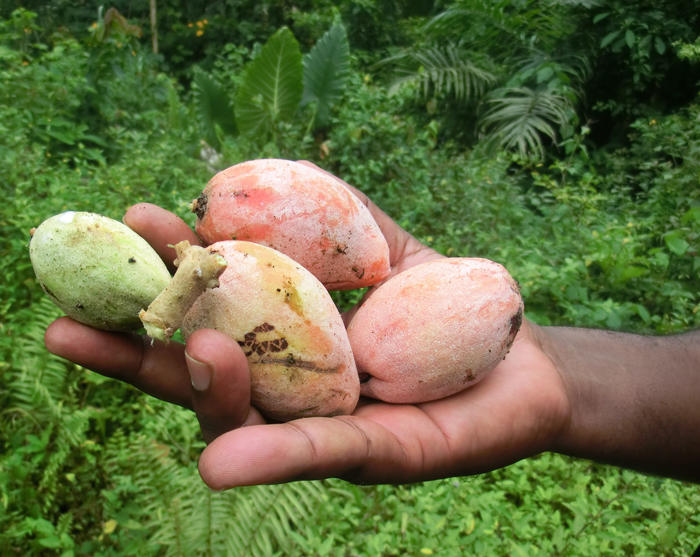Authors of a new paper promote the nutritional value of forest foods in Cameroon

A recently published paper documents the nutritional composition and value of foods obtained from forest trees – ‘moabi’ fruits and oil, ‘Mvout’ fruits and the seeds of ‘ebaye’ and calls for their increased consumption.
A recently published paper documents the nutritional composition and value of foods obtained from forest trees – ‘moabi’ fruits and oil (Baillonella toxisperma), ‘Mvout’ fruits (Trichoscypha abut) and the seeds of ‘ebaye’ (Pentaclethra macrophylla).
Foods gathered from the forest are important sources of nutrients and energy for millions of people in Cameroon, Gabon, Central African Republic, Congo Republic and DR Congo.
Foods from these three species were found to make important contributions to meeting daily nutritional requirements. The seeds of ‘ebaye’ (P. macrophylla) has higher fat content than soybeans. These forest foods also contribute iron, zinc, magnesium and vitamins C and E, complementing staple crops produced in agricultural fields. The authors of the paper call for promoting increased consumption of these foods and broader dissemination of information regarding their nutritional and phytochemical composition.
The research was carried out within the 'Beyond Timber' project, which aims to produce information, tools and guidelines for government agencies and timber producers to safeguard access by local people to non-timber resources, even within timber concessions.
Read the full paper 'Nutrients and bioactive compounds content of Baillonella toxisperma, Trichoscypha abut and Pentaclethra macrophylla from Cameroon'
The 'Reconciling the Needs of the Logging Industry with those of Forest-Dependent People' ('Beyond Timber') project is led by Bioversity International. The project is funded by the Congo Basin Forest Fund and the CGIAR Research Program on Forests, Trees and Agroforestry.
Photo: Succulent mvout fruits. Credit: Bioversity International/J.Tieguhong
